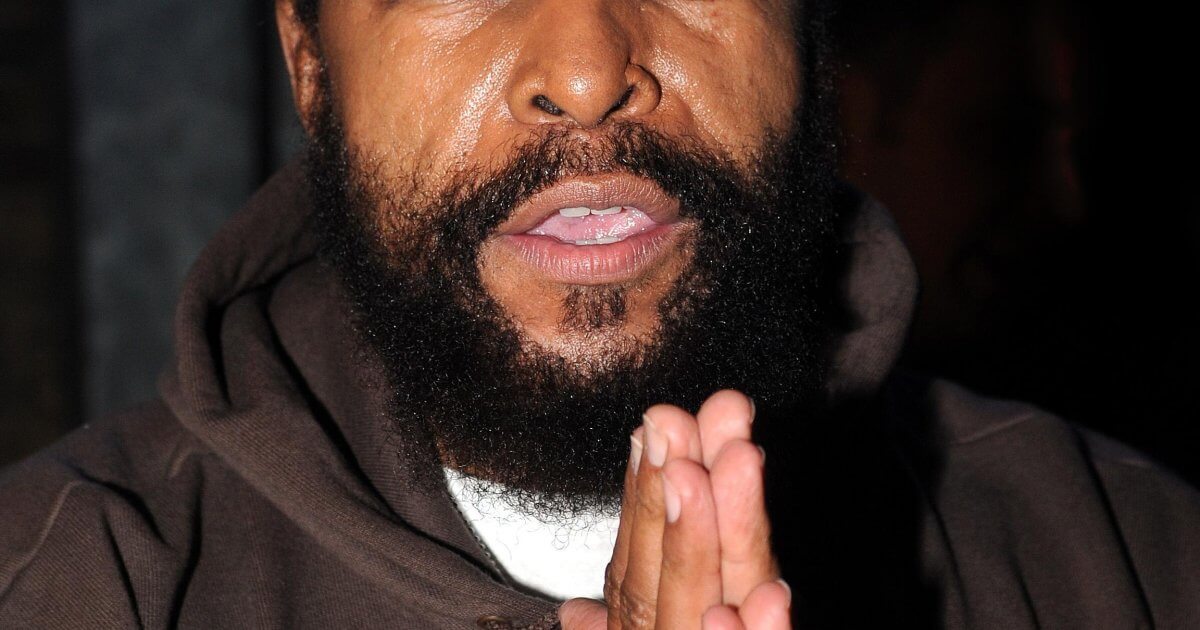A Faith-Filled Fight With Cancer
- Mr. T was diagnosed with T-Cell lymphoma in 1995.
- He underwent years of treatment including chemotherapy, radiation and interferon therapy.
- He relied on his faith to help with through his fight with cancer and today encourages others fighting cancer to do the same.
Related: Eddie Van Halen's Wife's Positivity During His Battle With Throat Cancer Is Inspirational
Read MoreNot Always the Tough Guy
It was in 1995, at just 43, that Mr. T found the first telltale sign of the disease when he was removing one of his diamond earrings. He noticed a small spot on his ear that concerned him. While his first instinct was to ignore it, he had a biopsy two weeks later and got the cancer diagnosis. Related: Not Your Parents' Chemotherapy: New Solutions for Nausea, Hair Loss, and Other Chemo Side Effects During Ovarian Cancer TreatmentAt first, it seemed like treatment would be brief, since the cancer was isolated to his earfive weeks of radiation, and he'd be finished. Unfortunately, less than a year later, the cancer came back. "Cancer sores are sprouting up on my body and I can't stop it! I have no control over this cancer growing outside of my body on my arms, my back, my legs, and my stomach … It is cancer popping like microwave popcorn on my body. I am afraid at this point; no tough guy today." he told the magazine.
For the next several years he underwent chemotherapy, interferon therapy, low-dose chemotherapy and more radiation.
“I see why some cancer patients give up the struggle for life and quit,” he continued. “With my body, my mind, and my spirit shell-shocked like that, quitting seems easy … Chemo and cancer fight from my head to my toes.”
“We can be cancer survivors.”
While he had low moments, he never gave up his fight and relied on his strong faith.
He applies the same resolve and sense of resilience to the COVID-19 pandemic.
This too shall Pass. This Coronavirus didn't Come to Stay. It Came to Pass. With GOD, All Things are Possible!
— Mr. T (@MrT) March 23, 2020
Cancer survivor Sharonda Vincent discusses the talk with God she had during her cancer journey.
The Biggest Fight Of His Life
In 2000, as he was battling, he told Coping, "Cancer wants to fight me again, I am not afraid this time. Fighting cancer for the third time, can I still believe in God? Yes, I can, and stronger than before."
Doctors say finding this type of emotional strength is vital for those facing cancer. "We know…better quality of life is associated with better survival, better outcomes," Dr. Dana Chase, a gynecologic oncologist at Arizona Oncology, told SurvivorNet. "Definitely working on your emotional health, your physical well-being, your social environment…working on those things and making them better are important and can impact your survival."
Related: What Still Brings You Joy? Your Emotional Health is So Important to Living with Cancer
Mr. T summed up the sentiment well with his signature line, telling the magazine: "I pity the fool who just gives up. We all gonna die eventually from something or other, but don't be a wimp. Put up a good fight. Don't sit around waiting on death. We can be tough. We can be determined. Go out and have some fun and make death find you! We can be living with cancer, not dying from it. We can be cancer survivors."
Keeping the Faith
Today, more than two decades after his diagnosis, he's healthy but still full of faith and gratitude. His Twitter feed is chock-full of uplifting, spiritual messages encouraging others battling cancer.
I said before, Our Faith will be Tested Again and Again! Whether it’s because of Wild fires, Floods, Earthquakes, War or Cancer! but through it All GOD is Able! Hebrews 11:1 #BreastCancerAwarnessMonth
— Mr. T (@MrT) October 4, 2018
Cancer survivor Sharon Spencer talks about the role faith played in her battle.
Learn more about SurvivorNet's rigorous medical review process.


